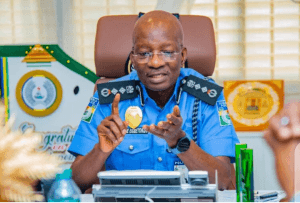IGP Bans Parade of Suspects, Citing Human Rights Concerns
By Parrot Newspaper
The Inspector-General of Police (IGP), Kayode Egbetokun, has officially banned the public parade of criminal suspects by police operatives across Nigeria. The decision, announced on Tuesday, aims to align with international human rights standards and uphold the dignity of all individuals, including those accused of crimes.
Speaking through the Force Public Relations Officer, Assistant Commissioner of Police (ACP) Olumuyiwa Adejobi, the IGP reiterated that the directive prohibits media exposure of suspects before formal charges are filed in court. He emphasized that all police formations and commands have been previously instructed to comply, as part of ongoing efforts to modernize the force and ensure ethical law enforcement.
“The directive reflects our commitment to respecting fundamental rights and promoting fair judicial processes,” Adejobi stated. “It is in line with global best practices and aims to prevent the undue stigmatization of suspects who are yet to be convicted by a competent court.”
The police chief warned senior officers in charge of commands and formations to strictly adhere to the directive, stressing that any violation would not be tolerated. He also called on the media to practice responsible journalism by refraining from publishing or broadcasting suspect parades.
“The Nigeria Police Force remains dedicated to enforcing the law while fostering a culture of human rights respect. We seek public cooperation, especially from the media, to ensure the fair treatment of all individuals within the justice system,” Adejobi added.

The move has sparked reactions from legal experts, human rights activists, and media practitioners. While some praise it as a progressive step toward justice reform, others question its effectiveness in deterring crime, arguing that public shaming serves as a deterrent.
The implementation of this directive will likely reshape law enforcement practices in Nigeria, raising questions about accountability, crime prevention strategies, and the role of the media in crime reporting.
Public Reactions and Implications
This development follows growing concerns from human rights organizations that suspect parades violate the presumption of innocence until proven guilty. Critics argue that exposing individuals to media scrutiny before trial can lead to wrongful stigmatization, even when suspects are later found innocent.
However, some Nigerians believe suspect parades serve as a crucial tool for crime prevention and public awareness. The ban is expected to challenge police transparency, raising demands for alternative ways to assure the public that justice is being served.
With this directive in place, the spotlight now turns to its enforcement and how police officers will adapt to the evolving landscape of criminal justice in Nigeria.


